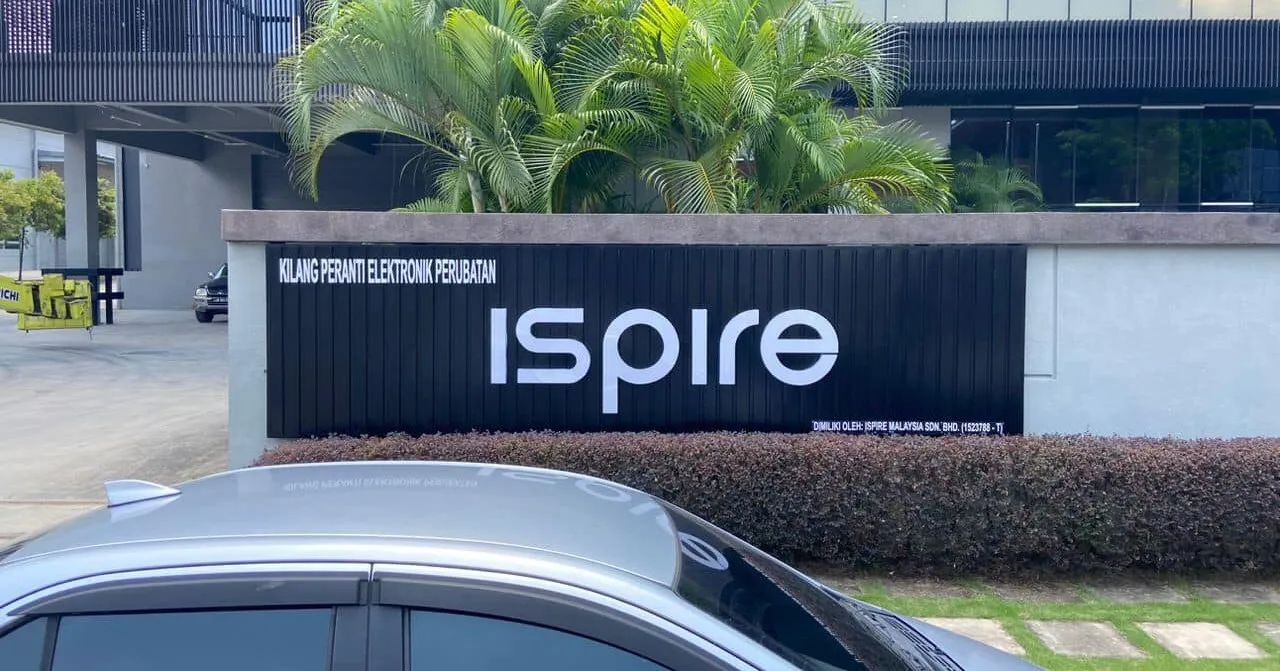Ispire Secures Malaysia’s First Nicotine Vape Manufacturing License — But Sales Remain Prohibited Domestically
Introduction: Malaysia’s Vape Industry Faces Crossroads as Ispire Gains First Nicotine License
Malaysia’s E-cigarette industry is once again under the spotlight after U.S.-listed company Ispire Technology Inc. obtained the country’s first and only nicotine vape manufacturing license. While this move has the potential to position Malaysia as a regional production hub for vape and vapor devices, it also ignited public debate due to conflicting state-level regulations and public health concerns.
Despite Ispire’s factory being located in Johor—a state that banned the sale of E-cigarettes as early as 2016—the license, granted via the Ministry of Investment, Trade and Industry (MITI) through the Malaysian Investment Development Authority (MIDA), is strictly for export purposes.
On June 4, 2025, the Malaysian Ministry of Health (MOH) released an official clarification in response to widespread concerns, stating that the license does not authorize domestic sales of any nicotine-containing vape products. Instead, it limits Ispire’s operations to manufacturing for export markets only, in compliance with the Control of Smoking Products for Public Health Act 2024 (Act 852).
Regulatory Landscape: A Patchwork of State-Level Vape Bans
Malaysia’s fragmented regulatory environment has made it difficult for businesses and consumers alike to navigate the legal status of E-cigarettes, vapor, and fruit flavored vape products.
For example:
- Johor, where Ispire’s factory is located, banned E-cigarette sales in 2016.
- Kedah, Kelantan, and Terengganu have followed suit with varying restrictions.
- National regulation, prior to Act 852, was largely absent, resulting in inconsistent enforcement.
The introduction of Act 852 in early 2024 marked the first significant federal attempt to regulate vape products, including nicotine-containing vape liquids, disposable E-cigarettes, and flavored vape cartridges.
According to the Act:
“All parties intending to import, manufacture, or distribute smoking products — including vapor-based devices and e-liquids — must register with the Ministry of Health before undertaking any such activity.”
Ispire’s License: A Manufacturing-Only Greenlight
Despite headlines suggesting a regulatory shift in Malaysia’s stance on nicotine vapes, the government was quick to clarify that no domestic sale or distribution is permitted under the license issued to Ispire.
The MOH stated:
“The temporary license obtained through MIDA from MITI is only for export purposes. The Ministry of Health has not approved any product registration for local market access.”
This confirmation followed media reports in May 2025 that cited investor documents from Ispire revealing that the company had already commenced production at a 31,000-square-foot facility in Senai, Johor in February 2024.
Factory Scale and Future Expansion
According to Ispire’s March 2025 investor presentation:
- The Johor factory currently houses seven production lines, with capacity to manufacture up to 61 million devices per month.
- A Phase II expansion, scheduled for Q4 2025, will boost floor space to 86,000 square feet and increase capacity to 107 million vape cartridges monthly.
- Ispire aims to scale the facility to 80 production lines, making it one of the largest vape manufacturing centers in Southeast Asia.
Co-CEO Michael Wang stated:
“This facility represents our strategic commitment to meeting the growing global demand for advanced vape technologies—particularly in countries where fruit flavored vape and open-system vaporizers dominate consumer preferences.”
Public and Political Reactions: Confusion and Concern
The move raised alarm bells across Malaysian civil society and political circles for two key reasons:
- Location Contradiction: Johor has a state-level ban on E-cigarette sales, yet the first factory to produce nicotine vapes is located there.
- Mixed Messaging: The existence of a legal factory risks giving the impression that Malaysia, or at least Johor, is “softening” its stance on vape regulation.
Lawmakers such as Dr. Kelvin Yii, Chairman of the Parliamentary Select Committee on Health, urged clarity and consistency:
“Allowing a factory to operate in a banned state without domestic sales authorization may seem contradictory. We must ensure the public health message remains unambiguous.”
Global Context: Vape Market and Export Potential
Ispire’s entry into Malaysia as a manufacturing base reflects a broader global trend. As regulatory pressures tighten in North America and Europe, companies are seeking Asia-based production hubs for vapor and E-cigarette products.
According to Grand View Research, the global vape market was valued at $28.2 billion in 2023 and is projected to expand at a CAGR of 30%+ through 2030.
Key factors driving growth:
- Consumer shift from traditional tobacco to vapor alternatives
- Increasing demand for fruit flavored vapes
- Regulatory bans on combustible cigarettes in many countries
However, the World Health Organization (WHO) continues to urge caution, stating:
“E-cigarettes are not harmless and can expose users to toxic substances. Youth-targeted flavors such as fruit flavored vape products may encourage nicotine addiction.
Final Thoughts: Opportunity or Red Flag?
For the global vapor industry, Malaysia’s issuance of its first nicotine manufacturing license is a noteworthy milestone. Yet the move highlights an emerging duality:
- On one hand, Malaysia may become a leading export hub for vape and E-cigarette hardware.
- On the other, the country is doubling down on restricting access to fruit flavored vape products and nicotine delivery systems locally.
Independent vape brands, OEM partners, and distributors should proceed with caution — navigating carefully between opportunity and regulation.
Discover more from Ameca-mall
Subscribe to get the latest posts sent to your email.

